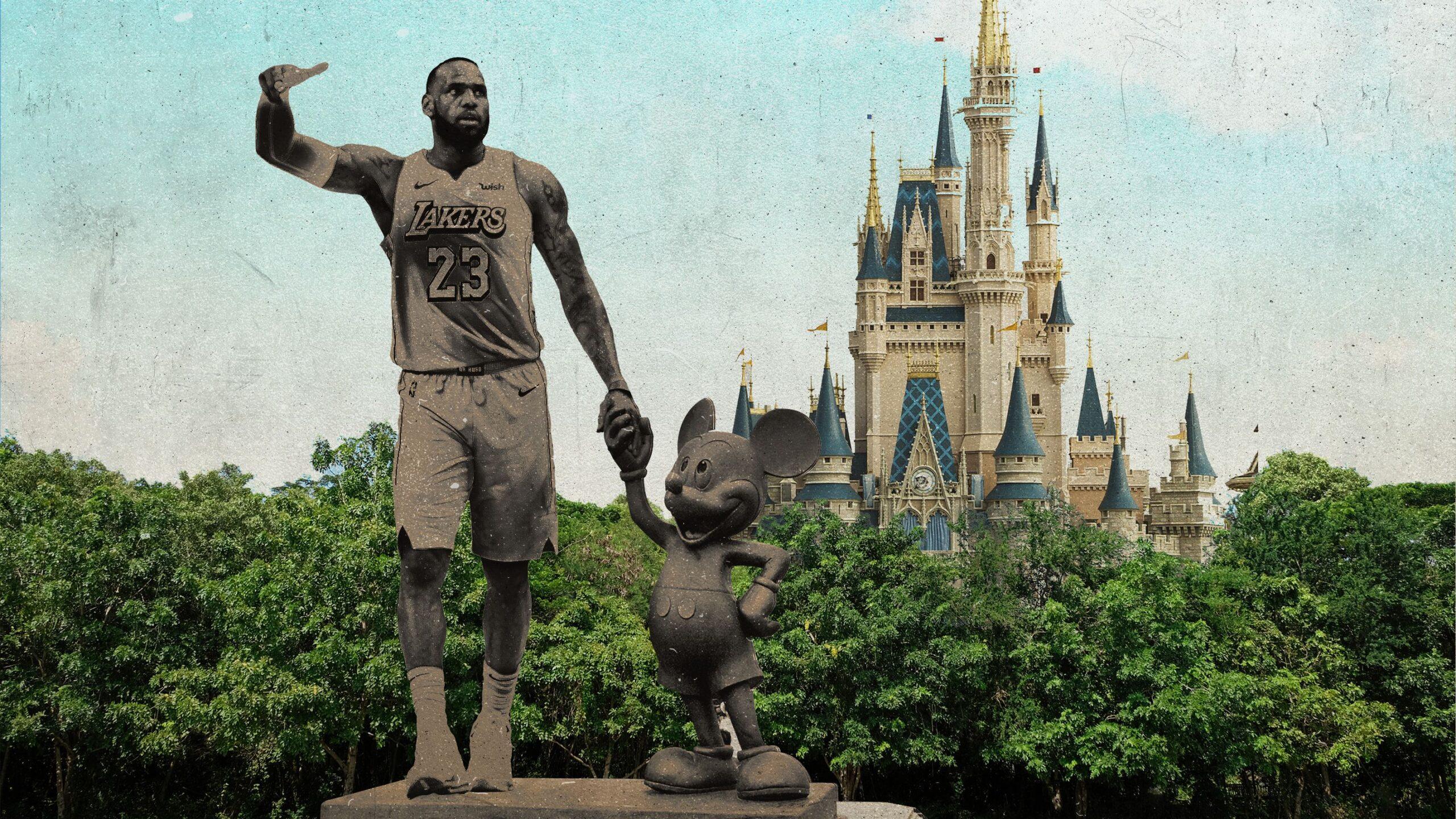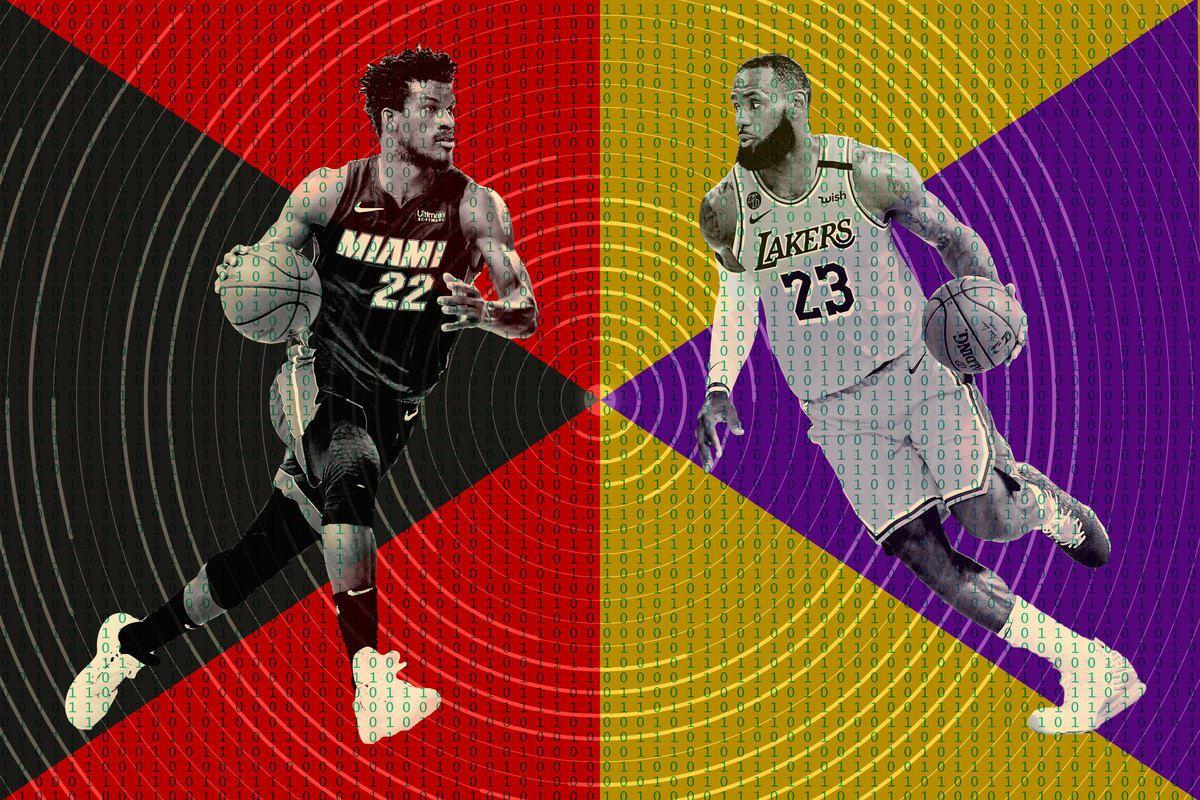T.J. Warren wasn’t going to continue to play like the greatest scorer of all time. Warren, who was traded to the Pacers for cash last offseason, averaged almost 35 points on 61 percent shooting over his first five games in the NBA bubble. Sure enough, Warren came down to Earth against the Heat on Tuesday, scoring just 12 points—or, about a quarter of what he scored in his first game in Orlando. But what he’s done of late isn’t a fluke.
Warren didn’t come out of nowhere. The former NC State player was named ACC Player of the Year in 2014, and prior to this season’s restart, he was averaging 18.7 points per game on 52.9 percent shooting for the Pacers. Still, there are two factors behind his recent offensive explosion. The first is the tweaking he’s done to his game over the past two seasons. The second is the new role he’s taken in Indiana’s offense since Domantas Sabonis went down with a foot injury.
Warren is playing like a modern-day Antawn Jamison. Like Jamison, he’s a 6-foot-8 combo forward with an unusual ability to score from all over the floor. And both are ACC legends who put themselves on the NBA map with 50-point barrages. Warren dropped 53 on Ben Simmons, one of the best defenders in the NBA, in his first game in the bubble; Jamison scored 51 in consecutive games in 2000. Warren also has a Jamison-like ability to score with one-handed runners and floaters as well as scoop shots from a wide variety of release points. Think of them like taller versions of Tony Parker. All a defender can do against a player who can make these shots is shake their hand:
It takes Warren only a split second to create a shot. He doesn’t need to back down defenders in the post or dribble the ball into the ground at the 3-point line. He’s always moving, and once he gets the ball, he either immediately shoots it or gives it back. Most players who shoot as much as Warren (14.9 field goal attempts per game this season) without setting anyone else up (1.5 assists) would be fairly unpopular among their teammates. But he’s beloved in Indiana in part because his success doesn’t take away from anyone else. Warren can go for 50 and still give everyone else time with the ball. Look at how little he touches it in comparison to the other top-five scorers in the bubble:
Top Bubble Scorers
That ability has allowed Warren to score in bunches throughout his career. He came off the bench in his first two seasons with the Suns, but still averaged 16.2 points on 51.0 percent shooting per 36 minutes of playing time. His points rose as he began playing more, and as a starter in his next three seasons in Phoenix, he averaged 17.2 points per game on 49.4 percent shooting.
The problem, though, was that he was scoring without helping his team win: The Suns averaged just 22 wins in their last four seasons with Warren. So they traded him to the Pacers for cash in the offseason, which in turn freed up cap space for Phoenix to sign Ricky Rubio.
The move hardly made a splash at the time, but Warren is a different player now. The first big change happened last season, when he began shooting 3s. Over his first four seasons in Phoenix, he shot just 28.3 percent from 3 on only 1.3 attempts per game. Defenses could ignore him on the perimeter, making it harder for him to attack off the dribble and giving them a man advantage when he was playing without the ball.
It’s not like Warren was a bad shooter. He always had great touch from 2-point range (career 53.6 percent on 10.5 attempts per game) and the free throw line (77.9 percent on 2.5 attempts). He just needed to figure out how to make it work from one step farther back—and that’s what he did. Much like that of Brandon Clarke, Warren’s touch on his floater was an indicator that he could become a better shooter in time. Now, he’s averaging 40.3 percent from 3 on 3.4 attempts per game.
The second change was buying in on defense. Like a lot of players who start their NBA careers on bad teams, Warren developed terrible habits on that end of the floor. He didn’t give much effort, and spent his time waiting for his turn to score. It’s hard to blame him. Good defense is a team effort. The Suns would have given up a million points regardless of what he did.
Getting traded to Indiana was the best thing that could have happened to him. The Pacers have missed the playoffs only once in the past nine seasons, in part because of a culture that emphasizes defense. Coach Nate McMillan won’t tolerate a lack of effort or poor fundamentals from his players, and Warren’s scoring ability would no longer cover up his sins on defense.
There was no reason Warren couldn’t be a decent defender. At 6-foot-8 and 220 pounds, he has the size and speed to match up with the NBA’s biggest wings, and playing for McMillan has forced him to use his physical tools on both sides of the ball. Indiana has the no. 6 defense in the NBA this season while often putting Warren on elite perimeter scorers. The list of his most frequent assignments includes Jimmy Butler, Khris Middleton, and Jayson Tatum. Warren even got into a scuffle while guarding Butler in January, something that would never have happened in Phoenix.
The new and improved version of Warren has been a key part in Indiana’s success without Victor Oladipo this season. He spaces the floor and scores without holding the ball, which allows him to play off Sabonis and Malcolm Brogdon, while also occupying an important role on defense. But it’s hard for a secondary option on a small-market team to get much publicity.
Everything changed when Sabonis went down. Warren has gone from averaging 14.2 field goal attempts per game before the lockdown to 21.3 per game after. He’s also getting better shots because of the way the Pacers have altered their lineups. Instead of starting at small forward next to two big men in Sabonis and Myles Turner, a deliberate offense that pounds the ball inside, Warren is now a power forward next to three guards in a more free-flowing attack.
Warren won’t be able to continue at this pace. He’s averaging career highs in 2-point percentage (60.4) and 3-point percentage (52.4) despite being in the largest offensive role of his career. But he would still be an elite scorer even if his percentages regress to the mean. The goal should be for him to find a happy medium between his roles before and after the shutdown, likely somewhere around 18.0 attempts per game. That is, after all, the same number of shots Jamison averaged in the prime of his career.
Warren’s offensive explosion could answer the two questions that have been hanging over the long-term future of the Pacers. The first is what to do with Sabonis and Turner. The two big men have always been an uneasy fit together. They made it work this season by minimizing Turner’s role on offense and stationing him at the 3-point line to give Sabonis more room to operate inside. But while Warren had been playing well with both big men, he can be great with only one.
The obvious solution is for the Pacers to trade one of their big men for a wing. It may not even matter which one. Both Sabonis and Turner can fit next to Warren, and Indiana is currently starting Aaron Holiday at point guard and shifting Oladipo and Brogdon down a position. The team doesn’t even need to get much in return in a trade. Jeremy Lamb was having the best season of his career before a knee injury in February. A starting five of Oladipo, Brogdon, Lamb, and Warren with either Turner or Sabonis at center would be one of the best in the NBA.
Going smaller might also make the Pacers more attractive to Oladipo. He will be an unrestricted free agent in the summer of 2021, if he doesn’t sign an extension this offseason, and a change in philosophy could make him want to stick around.
That shift in philosophy could also indicate a coaching change. There have been a lot of whispers around the NBA this season about McMillan’s job security. His preferred offensive philosophy of walking the ball up the floor, pounding it inside, and taking a lot of long 2s makes it hard for his guards to put up huge offensive numbers. It isn’t nearly as fun as pushing the pace, running pick-and-rolls and isolations, and spreading the floor with 3-point shooters.
If the team does decide to move on, one name I have heard as a potential replacement is Rockets coach Mike D’Antoni. He’s in the last season of his contract with Houston, and his agent had a public clash with owner Tilman Fertitta after the two did not agree to an extension last summer. D’Antoni’s offense would be a perfect fit on a smaller Indiana team built around Oladipo and Warren.
But coaches are ultimately less important to style than the players. Warren has been unlocked as a small-ball 4. That shouldn’t change regardless of who is on the sideline. This version of Warren is the perfect long-term complement to Oladipo—the beauty of his game is that he can score at a high level without being the centerpiece of the offense. Warren doesn’t have to be the Bubble God. But his emergence might still change Indiana’s future.


